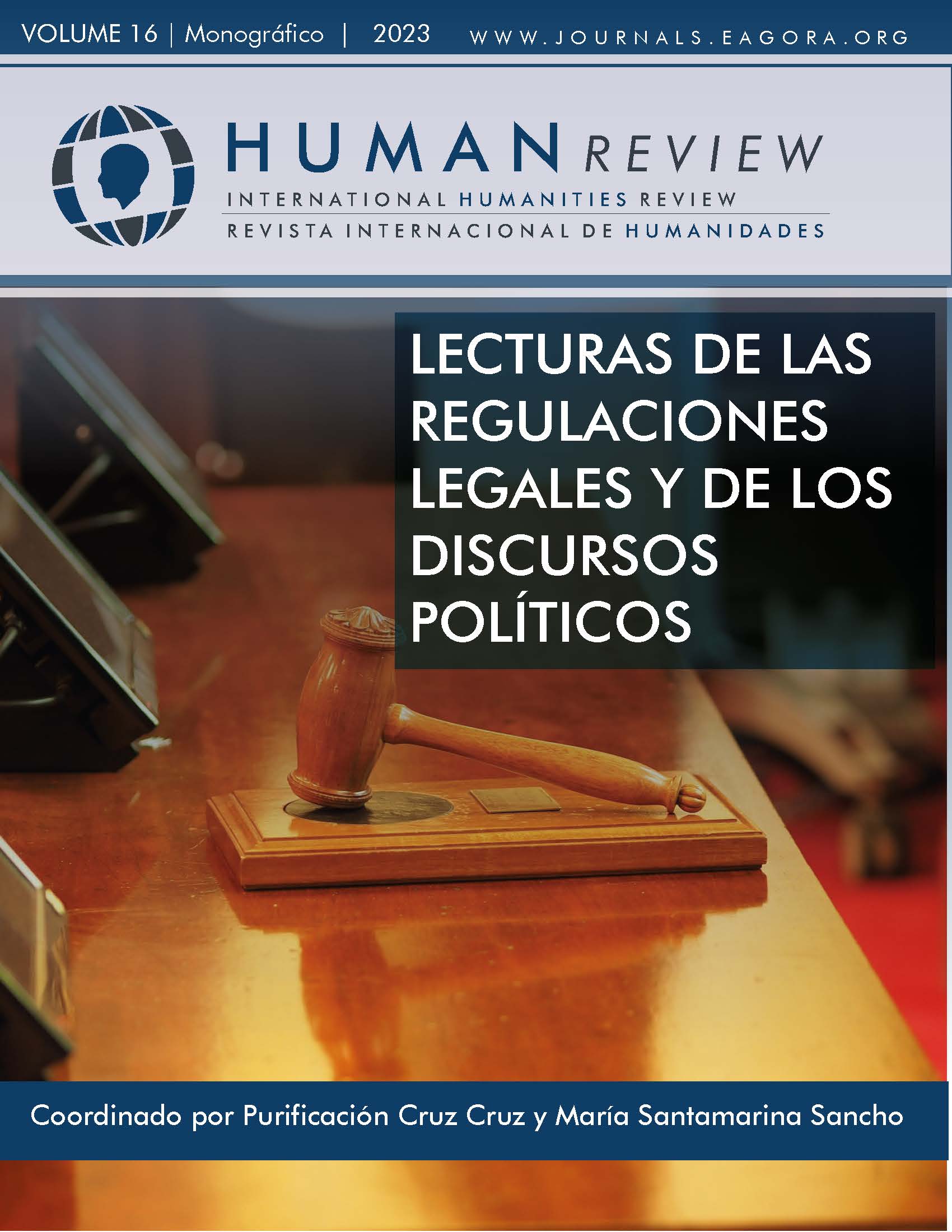Features of dedemocratization in culture politics of Mexican society
DOI:
https://doi.org/10.37467/revhuman.v12.4642Keywords:
Democracy, Dedemocratization, Political Culture, Mexico, Public opinionAbstract
This research work takes several surveys applied at the international and national level, to identify the political culture of citizens on the major issues of the national agenda and their perception of democracy. It warns about the problems that Mexico has around the institutions that guarantee democracy and warns about the features of democratization that opinion polls such as ENCUCI, applied in 2020, can show. At the end, he describes the suggestions based on the theoretical and documentary review of the Mexican case.
References
Bartells, L. (2022), Democracy Erodes from the Top: Leaders, Citizens, and the Challenge of Populism in Europe, Princeston University Press.
Castell, M. (2016). De la crisis económica a la crisis política, libros de vanguardia, Madrid, España.
Dahl, R.(2020), On democracy, Yale Press Books, United States of América
Dahl, R. (2009). La poliarquía: participación y oposición, editorial Tecnos, Madrid.
Esteves, J. (2013). Crisis de la democracia en Europa, Oximora. Revista Internacional de Ética y Política. Número 3, otoño 2013, pp. 8-22
ENCIG (2021). Encuesta Nacional de Calidad e Impacto Gubernamental, Instituto Nacional de Estadística Geografía e Informática (INEGI), México.
ENCUCI (2020), Encuesta Nacional de Cultura Cívica, 2020. Instituto Nacional de Estadística Geografía e Informática (INEGI), México.
Galarza, J. y Ribadeneira, E.(2022). Los sistemas políticos contemporáneos: Democracia, Autoritarismo, Totalitarismo. Regímenes híbridos. Ciencia Latina Revista Científica Multidisciplinar, 6(5), 3063-3081. https://doi.org/10.37811/cl_rcm.v6i5.3301
INE (Instituto Nacional Electoral) (2015). Informe País. México.
Levitsky, S. & Ziblatt, D. (2018), Cómo mueren las democracias, editorial Ariel, México.
Linz, J. & Alfred S. (1996). Problems of democratic transition and consolidation: Southern Eu-rope, South America, and post-communist Europe. Baltimore: The Johns Hopkins University Press.
Lugo, B., Cruz, I. & Fernández, L. (2022). Satisfacción con la democracia en tiempos de la Cuarta Transformación Política y Cultura, enero-junio 2022, núm. 57, pp. 57-81
Lupu, N., Rodríguez M. & Zechmeister J. (Eds.) 2021. El pulso de la democracia. Nashville, TN: LAPOP.
Monsiváis, C. (2020). Corrupción y legitimidad democrática en México. Revista mexicana de sociología, 82(3), 587-618.
Monsiváis, C. (2020). La indiferencia hacia la democracia en América Latina, Íconos Revista de Ciencias Sociales, número 66, vol.XXIV, enero abril 2020, pp. 151-171. https://doi.org/10.17141/iconos.66.2020.3469
Morlino, L. (2008): ¿Regímenes híbridos o regímenes en transición? Sistema, 207: 3-22. Versión en ingles en: (2008): «Hybrid Regimes or Regimes in Transition?», Working Paper, 70. FRIDE.
Morlino, L. & Raniolo, F. (2021). Neopopulismo y calidad de la democracia, Estancias. Revista de Investigación en Derecho y Ciencias Sociales, año 1, número 1, enero-junio 2021, pp. 15-52.
Morris, S. & Klesner J. (2010). “Corruption and trust: Theoretical considerations and evidence from Mexico”. Comparative Political Studies 43 (10), 1258-1285.
Navarro, M. & Santos, J. (2022). Laboratorios contra la democracia, The Conversation, publicado el 22 de noviembre de 2022. https://theconversation.com/laboratorios-contra-la-democracia-193899
Przeworski, A. (1997). Una defensa de la concepción minimalista de la democracia“, Revista Mexicana de Sociología, vol. 59, núm. 3, julio–septiembre, 1997.
Resina, J. (2020).Sociedades enojadas: buscando las bases para nuevos acuerdos democráticos en América Latina, Documentos de Trabajo, Fundación Carolina, 31/2020.
Szmolka, I. (2010). Los regímenes políticos híbridos: democracias, autoritarismos con adjetivos. Su conceptualización, categorización y operacionalización dentro de la tipología de regímenes políticos, Revista de Estudios Políticos (nueva época), Núm. 147, Madrid, enero-marzo (2010), págs. 103-135.
Tilly, C.(2003) “Inequality, Democratization, and De-Democratization”. Sociological Theory, Vol. 21, No. 1 (Mar.), pp. 37-43.
Downloads
Published
How to Cite
Issue
Section
License
Those authors who publish in this journal accept the following terms:
- Authors will keep the moral right of the work and they will transfer the commercial rights.
- After 1 year from publication, the work shall thereafter be open access online on our website, but will retain copyright.
- In the event that the authors wish to assign an Creative Commons (CC) license, they may request it by writing to publishing@eagora.org









